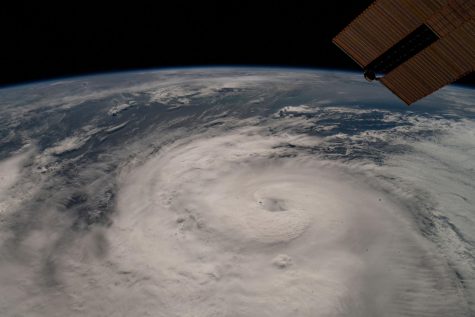Hurricanes are becoming more destructive scientists find
January 2, 2021
In a recent study of climate change’s impact on hurricanes, scientists found that hurricanes are becoming destructive for a longer time as they travel inland.
Scientists Lin Li and Pinaki Chakraborty of the Okinawa Institute of Science and Technology Graduate University in Japan analyzed data from North Atlantic hurricanes that made landfall from 1967 to 2018, in a study published in Nature.
While past scientists have focused on what occurs over water, Li and Chakraborty studied what happens after hurricanes make landfall.
The research suggests that climate change is affecting storms during the inland phase of their life as well as over waters, causing them to weaken more slowly and remain a threat for longer.
The study shows a typical storm 50 years ago would have lost more than three-quarters of its intensity in the first 24 hours, when it might travel several hundred miles inland. Now it would only lose about half of its intensity traveling the same distances.
Noting the findings, Jim Kossin, a hurricane expert with the National Oceanic and Atmospheric Administration who did not participate in the study, said,”I find it somewhat remarkable that these trends we keep discovering are so disproportionately for the worse.”
Although many are beginning to shine light on this topic, many scientists stand skeptical of human error within the experiment.
A prominent hurricane researcher, Kerry Emanuel of the Massachusetts Institute of Technology, said he was skeptical of the findings. In an email message, Dr. Emanuel said he disagreed with the researchers’ theoretical argument and that the data and simulations, “while suggestive, do not definitively prove the case that decay is slower in warmer climates independent of other factors, such as storm size.”
Although the study challenges an accurate representation of hurricane decay, the research will most likely motivate others to spur more thought and shed new light on this newly found research.





